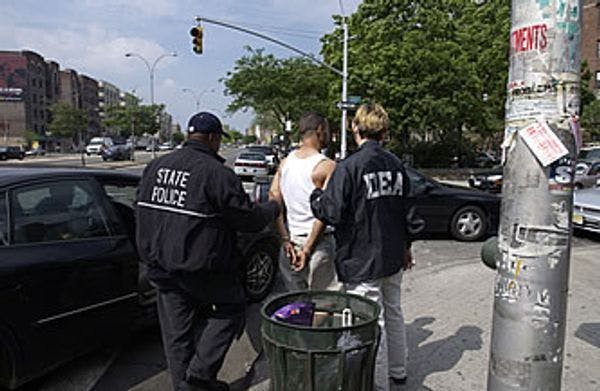Comment la DEA profite du combat contre la drogue
La DEA utilise la ferme interdiction du cannabis pour s’autofinancer à travers des saisies financières et la confiscation de biens. Pour en savoir plus, en anglais, veuillez lire les informations ci-dessous.
Abonnez-vous à l'Alerte mensuelle de l'IDPC pour recevoir des informations relatives à la politique des drogues.
The Drug Enforcement Administration has a vested interest in the War on Drugs, the federal government's decades-long mission to eradicate drug use in the U.S. Not only does it support the federal agency's core goal — to "enforce the controlled substances laws and regulations of the United States" — but it also serves the criminal justice system on a financial level, allowing the agency to profit off enforcement through budget requests and a civil asset forfeiture program.
Tough drug laws demand greater financial resources, a larger slice of the federal budget from the U.S. government. That's one theory as to why the DEA continues to enforce federal marijuana laws in legal states, despite public condemnation: It pays to criminalize pot.
The DEA has an entire department, the Domestic Cannabis Eradication/Suppression Program, dedicated to the enforcement of marijuana laws under the Controlled Substances Act, which strictly prohibits the use, cultivation, and sale of cannabis in the U.S. Federal law regards marijuana as a Schedule I drug — as addictive and dangerous as heroin. Schedule 1 drugs are considered the most dangerous drugs and to have no “accepted medical use and a high potential for abuse,” according to the DEA.
So it makes sense that the DEA would resist changes in public opinion and state marijuana laws. Without weed, the agency would have to rely on demand for the enforcement of other drugs to justify their tall budget requests. And as it notes on its website, marijuana is the "only major drug of abuse grown within the U.S. borders." It's also the most commonly abused illegal drug in the country, according to National Institutes of Health.
But the War on Drugs doesn't just help the agency bolster its budget. Another controversial program allows the agency to seize the money and "assets" of people and businesses it suspects of violating federal drug laws.
In 2014, the Department of Justice took in about $3.9 billion worth of civil asset forfeitures, more than doubling what the agency seized in 2005, The Wall Street Journal reported. The DEA contributes to those funds by seizing assets in suspected drug-related cases. A statistical report from the DEA's 2014 fiscal year shows that it seized more than $27 million is assets through the cannabis enforcement program alone.
Under the "asset forfeiture program," the DEA can take your money even if you haven't been charged or convicted of a drug-related crime. Sure, you can try to fight the forfeiture in court if you feel you've been wronged, but that can be a costly legal battle.
Click here to read the full article.
Keep up-to-date with drug policy developments by subscribing to the IDPC Monthly Alert.
Thumbnail: Wikipedia
